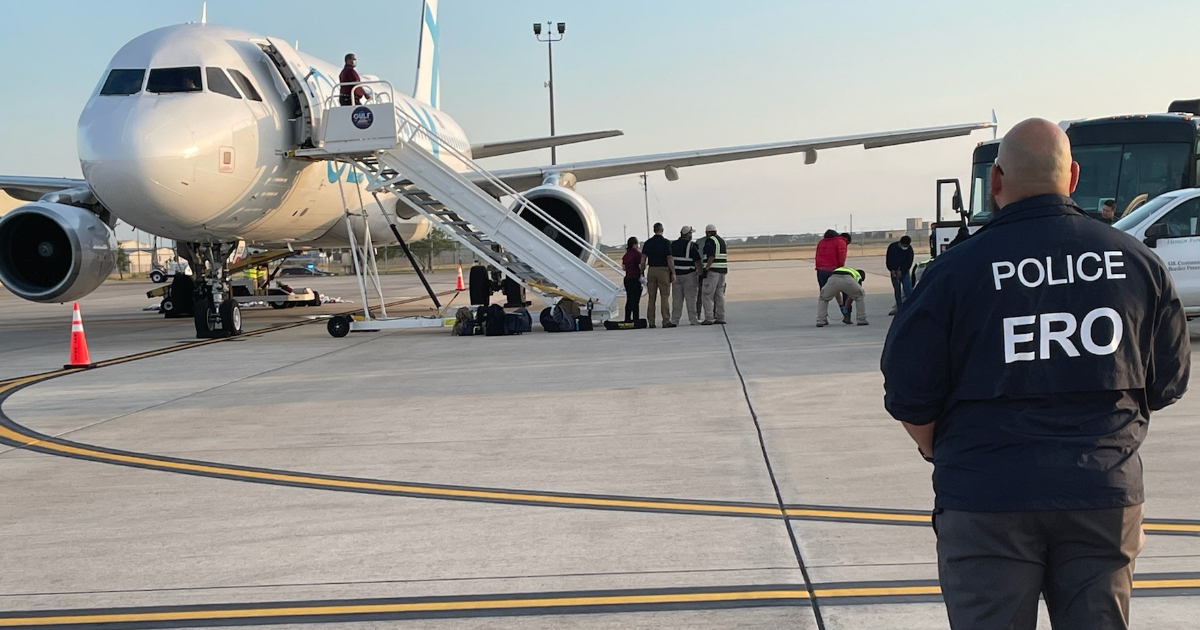
Related videos:
Immigration attorney Willy Allen offered his insights following President Donald Trump's granting of new powers to the Immigration and Customs Enforcement (ICE) to expedite the deportation of immigrants who entered the country under the humanitarian parole programs and CBP One.
In Allen's opinion, Cubans who arrived through humanitarian parole and are in the process of changing their status should not be worried, thanks to the protection provided by the Adjustment Act. This also applies to those with I-221A who have submitted their political asylum application.
"The Cubans who concern me are those who entered through CBP One, who have not been here for a year, have a cutoff date, or have exceeded the year and did not file for asylum; they may have a limited risk of being picked up," he said to the portal Café Fuerte.
According to the expert, the people who are in danger are those who have not applied for asylum in time or are not in legal proceedings.
"What could happen for Cubans who entered through CBP One is that their hearings may be expedited. But one thing is what they [the government] say and another is what they can actually do. Nine hundred sixty thousand people entered through CBP One. It is impossible to expedite their hearings. It's impossible to process them," he emphasized.
The lawyer believes that deportations should begin with the most vulnerable individuals, specifically migrants who entered under humanitarian parole. These are people who are easy to locate because they provided the address where they would be living and details about their sponsor upon entry. Within this large group, those facing the worst fate are the Nicaraguans and Haitians.
On Thursday, the newspaper The New York Times revealed an internal memorandum from the Department of Homeland Security (DHS) which discloses that Trump authorized ICE for the expedited deportation of beneficiaries of humanitarian parole programs and CBP One, implemented during the Biden administration.
The document, signed by Benjamine C. Huffman, the acting head of DHS, instructs ICE officials to use expanded powers to deport immigrants, even if they meet the conditions set by Biden's immigration policies.
The decision affects more than 1.46 million people who entered the country with temporary permits since January 2023.
The humanitarian parole program, which began to be implemented for Cubans in January 2023, allowed for the legal entry of approximately 531,690 immigrants, including 110,240 Cubans. This permit enabled them to reside temporarily in the United States, with options to regularize their status under certain conditions.
On its part, the CBP One program, which allowed migrants to apply for asylum through a mobile app, facilitated the entry of more than 904,500 people.
According to the DHS memorandum, ICE will be able to revoke these temporary permits and proceed to deport the beneficiaries, even if they have not exhausted their legal stay or have open cases in immigration courts.
Frequently Asked Questions About Humanitarian Parole and the Deportation of Cubans in the U.S.
What is humanitarian parole and how does it affect Cubans in the U.S.?
The humanitarian parole is a program created by the Joe Biden administration to facilitate the temporary entry of migrants from countries such as Cuba, Venezuela, Nicaragua, and Haiti. This program allows Cubans to reside temporarily in the United States with the possibility of regularizing their status through the Cuban Adjustment Act, which offers the option to apply for permanent residency after one year and one day of stay in the country.
Why do Cubans with humanitarian parole have a lower risk of deportation?
Cubans with humanitarian parole are protected by the Cuban Adjustment Act, which allows them to apply for residency after one year and one day in the U.S. This law is a significant advantage that reduces the risk of deportation compared to migrants from other nationalities who do not have similar legislation.
What measures has Trump taken to accelerate the deportations of immigrants with parole?
Donald Trump has granted new powers to the Immigration and Customs Enforcement (ICE) to deport immigrants who entered under programs such as humanitarian parole more quickly. These measures aim to strengthen immigration control and tighten restrictions, affecting over 1.46 million people who entered the country with temporary permits since January 2023.
What should Cubans in the U.S. do if humanitarian parole is eliminated?
Cubans already in the United States should consider alternatives such as applying for permanent residency under the Cuban Adjustment Act. It is essential that they keep their immigration procedures up to date and seek legal advice to explore other avenues, such as political asylum or an employment visa, depending on their personal situation.
Filed under: